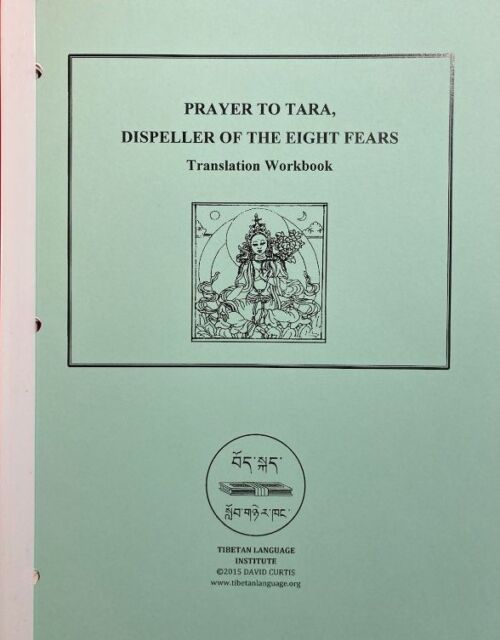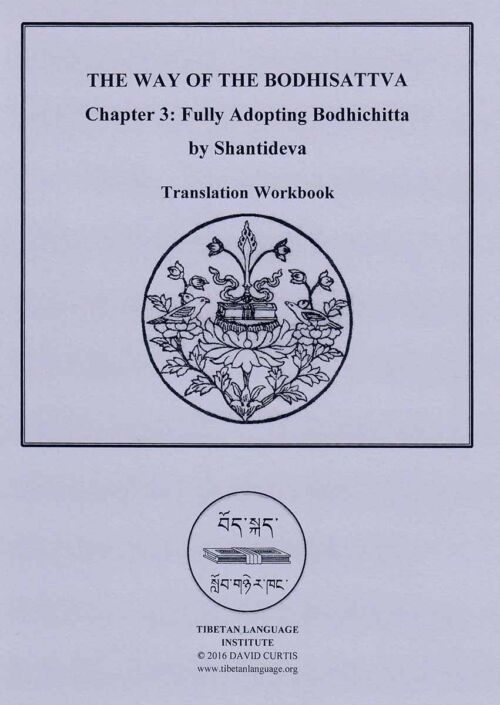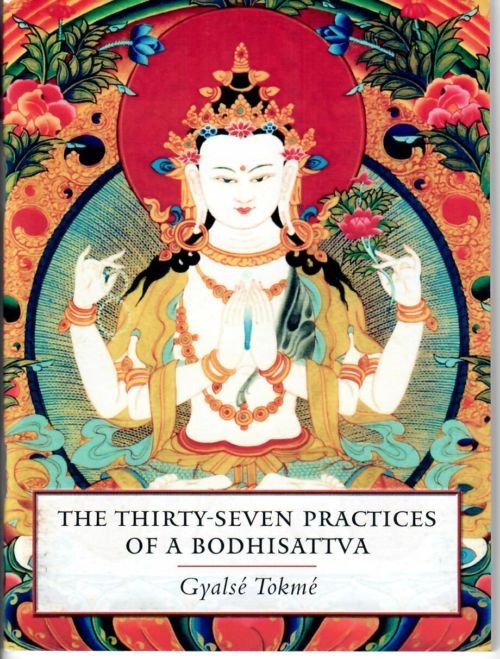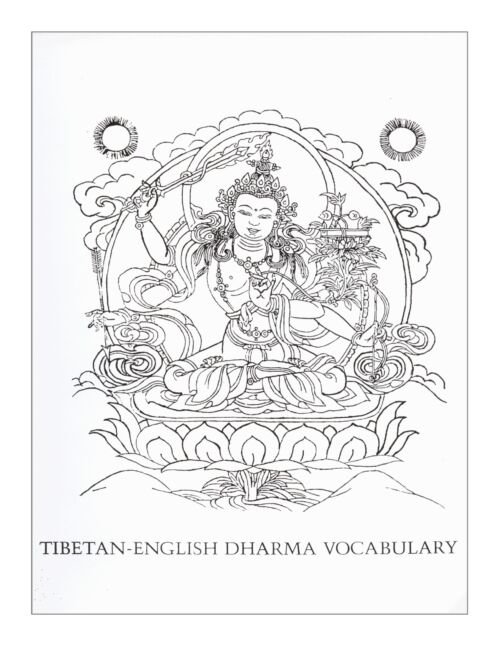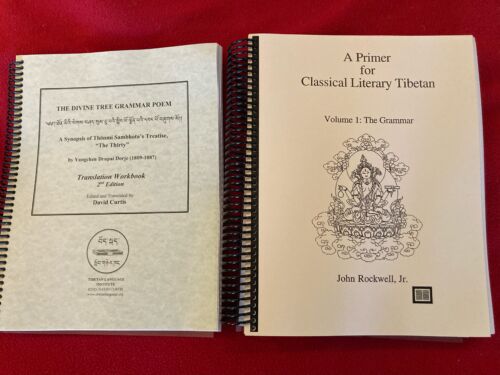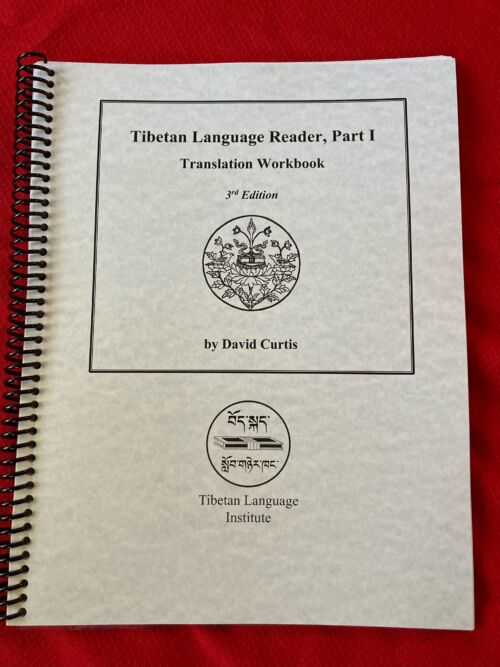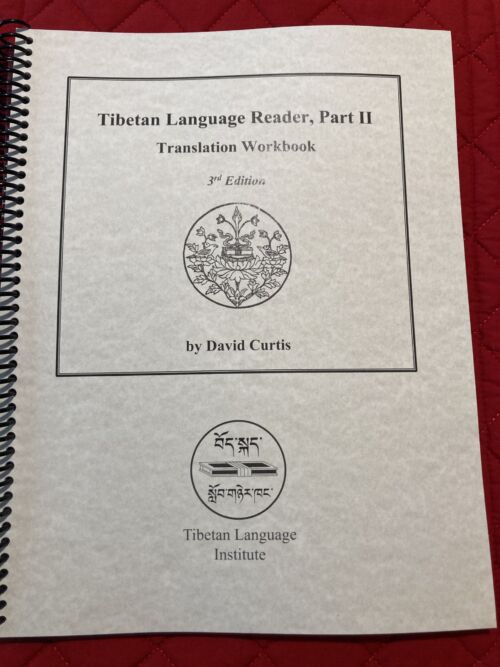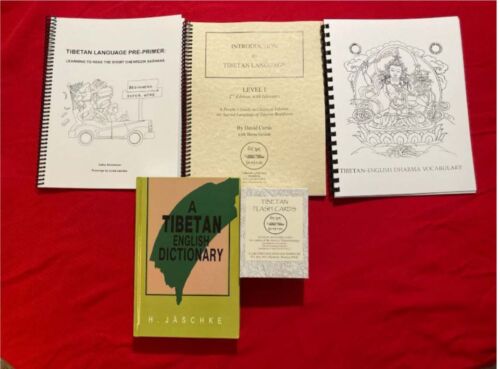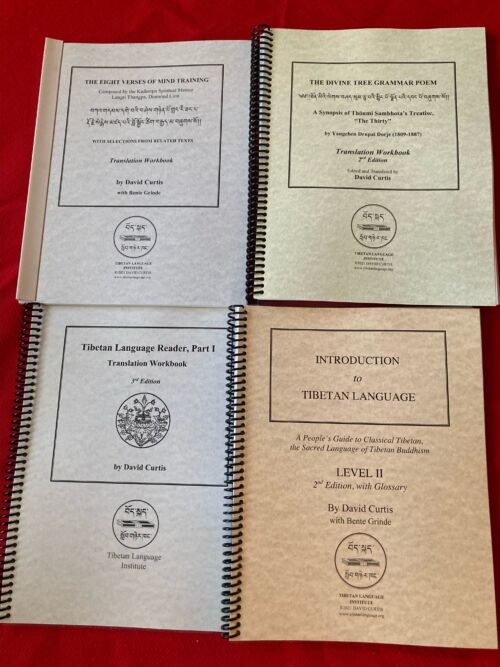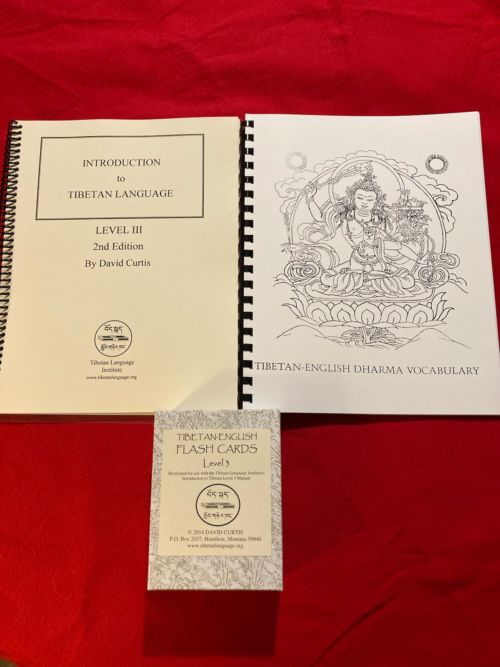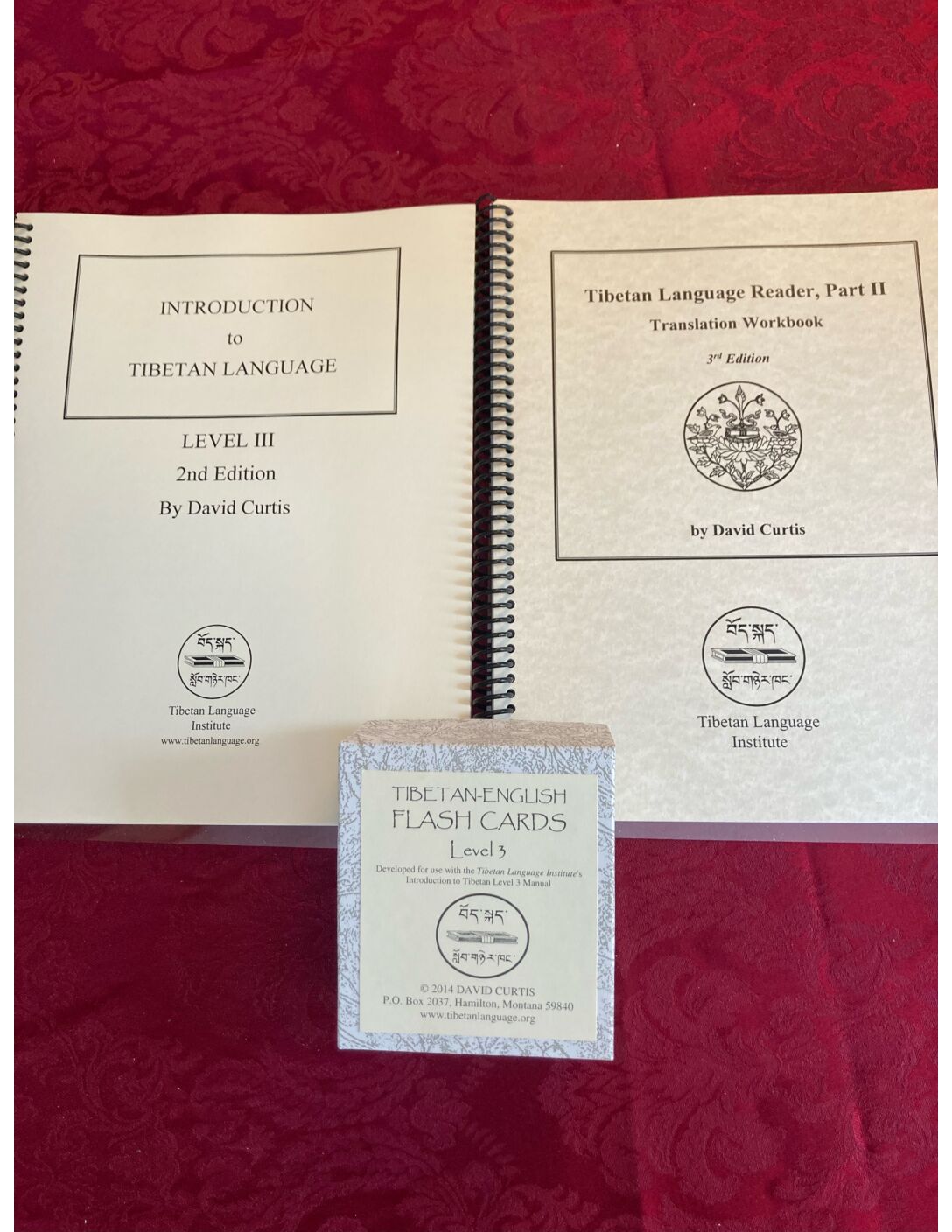-
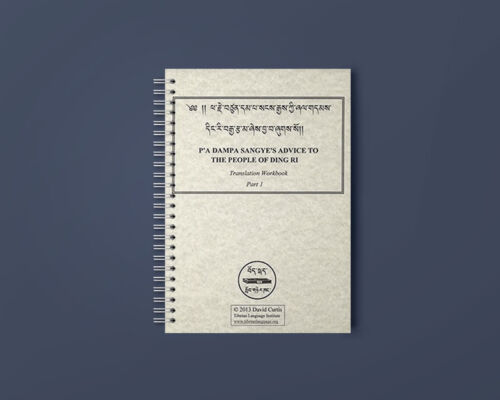 Our text is P'a Dampa's final teaching to his students in Ding Ri. Revered for nearly a thousand years by lamas and practitioners, his teaching contains practical and profound advice that still speaks to us today. The workbook contains the English translation, workbook pages for the student, an interlinear translation, and reading practice pages.
Our text is P'a Dampa's final teaching to his students in Ding Ri. Revered for nearly a thousand years by lamas and practitioners, his teaching contains practical and profound advice that still speaks to us today. The workbook contains the English translation, workbook pages for the student, an interlinear translation, and reading practice pages. -
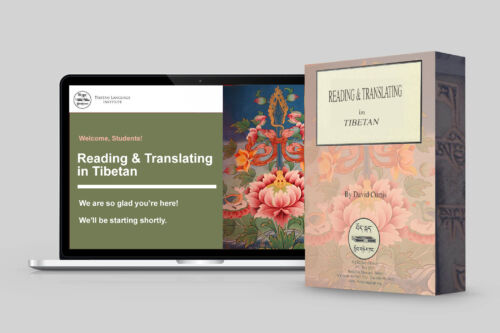 Completing the Level II Course, students are empowered to delve deeper into their study of Tibetan using various TLI reader/translation workbooks. As with previous courses, the group reads and studies a Classical Tibetan text such as the Heart Sutra in conjunction with the study of The Divine Tree Grammar Poem and Commentary. With Lama David as your experienced guide, we will study in an integrated manner to learn more about Tibetan grammar and vocabulary, as well as about Tibetan Buddhism.
Completing the Level II Course, students are empowered to delve deeper into their study of Tibetan using various TLI reader/translation workbooks. As with previous courses, the group reads and studies a Classical Tibetan text such as the Heart Sutra in conjunction with the study of The Divine Tree Grammar Poem and Commentary. With Lama David as your experienced guide, we will study in an integrated manner to learn more about Tibetan grammar and vocabulary, as well as about Tibetan Buddhism. -
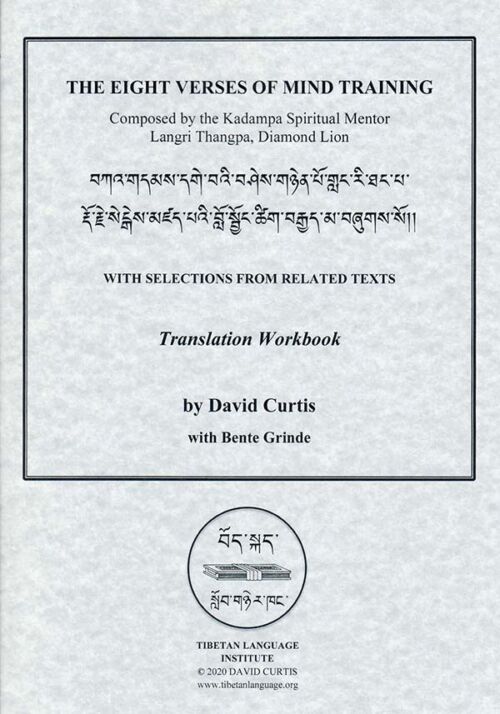 Become a better reader of Tibetan and engage more deeply with authentic Dharma teachings. Although written a thousand years ago by Kadampa spiritual mentor Geshe Langri Thangpa, the 8 Verses remains a brilliant lojong teaching that speaks right to our hearts in these challenging times. This a teaching that is still enthusiastically embraced by all lineages of Tibetan Buddhism. It has been taught by the 14th Dalai Lama, Lama Zopa Rinpoche, and most recently by Anam Thubten Rinpoche. Our workbook also has additional 4-line verses from various texts having to do with compassionate development of bodhicitta (the Heart of Awakening): a prayer from the Green Tara Sadhana, a verse from chapter 9 of Shantideva’s Engaging in the Conduct of the Bodhisattva, and a prayer from the Chenrezig Sadhana.
Become a better reader of Tibetan and engage more deeply with authentic Dharma teachings. Although written a thousand years ago by Kadampa spiritual mentor Geshe Langri Thangpa, the 8 Verses remains a brilliant lojong teaching that speaks right to our hearts in these challenging times. This a teaching that is still enthusiastically embraced by all lineages of Tibetan Buddhism. It has been taught by the 14th Dalai Lama, Lama Zopa Rinpoche, and most recently by Anam Thubten Rinpoche. Our workbook also has additional 4-line verses from various texts having to do with compassionate development of bodhicitta (the Heart of Awakening): a prayer from the Green Tara Sadhana, a verse from chapter 9 of Shantideva’s Engaging in the Conduct of the Bodhisattva, and a prayer from the Chenrezig Sadhana. -
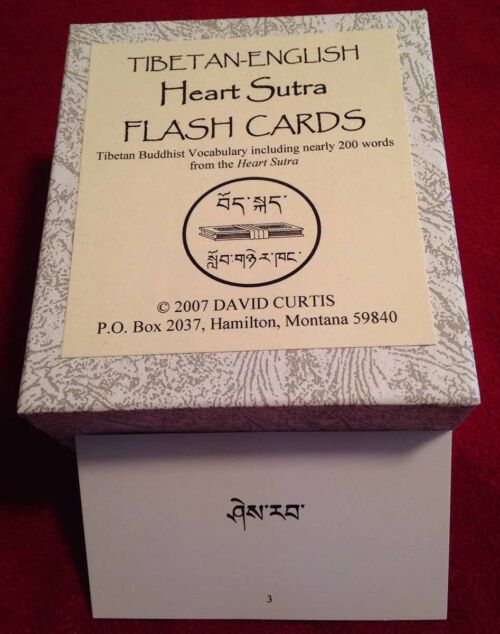
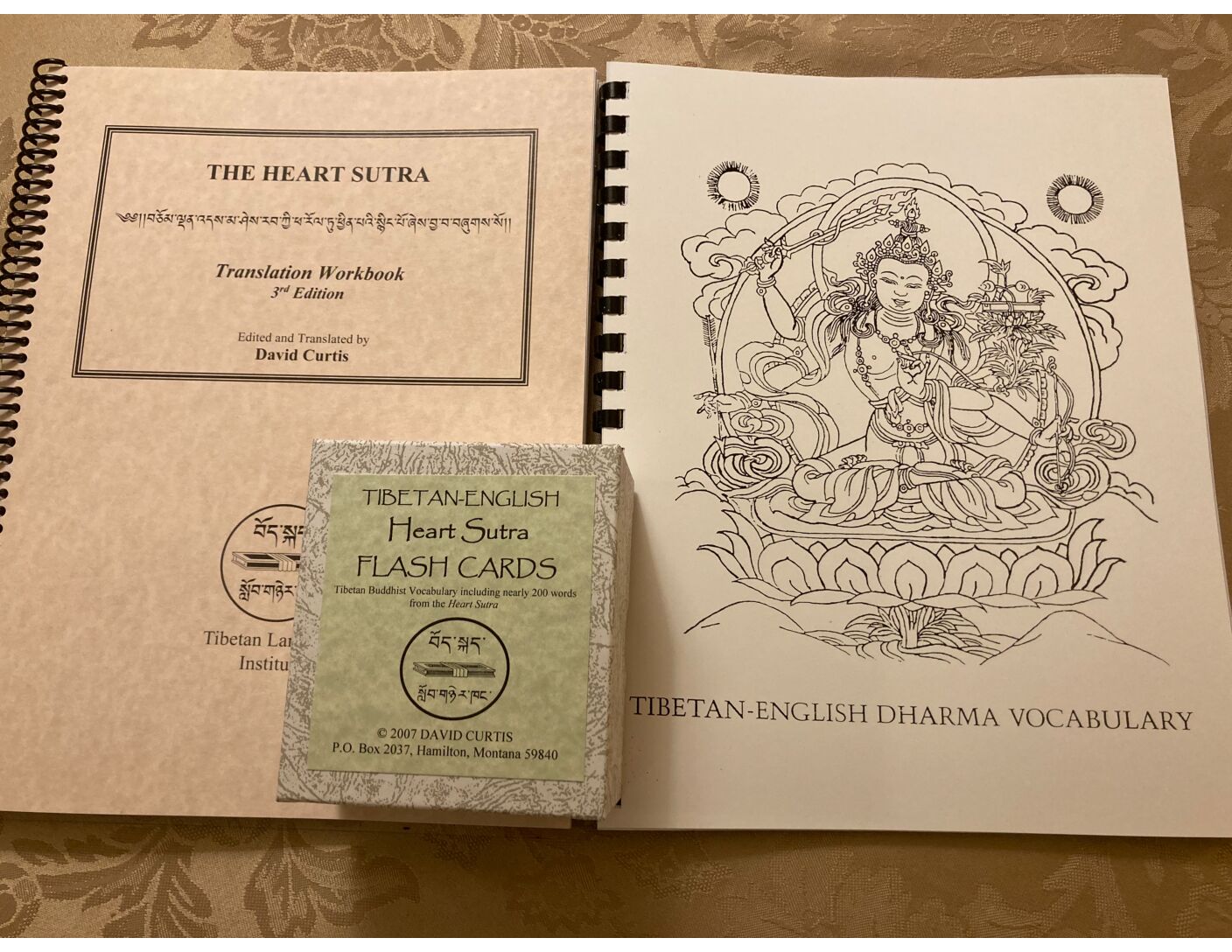 This learner-friendly package was designed for students who can read the Tibetan script and use the Tibetan-English dictionary. The package includes the following items:
This learner-friendly package was designed for students who can read the Tibetan script and use the Tibetan-English dictionary. The package includes the following items:- Heart Sutra Translation Workbook 3rd ed.
- Tibetan-English Heart Sutra Flash Cards
- Tibetan English Dharma Vocabulary
-
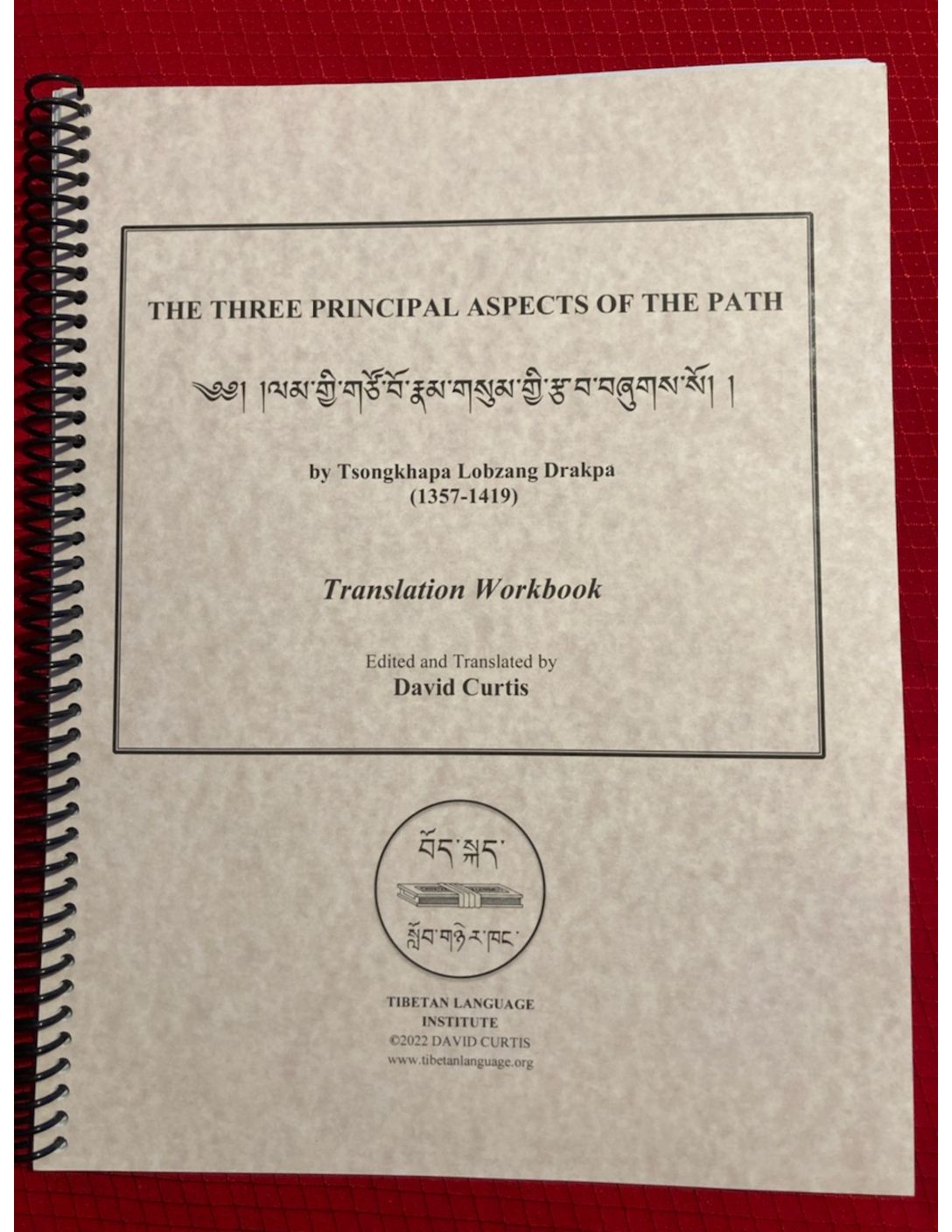 Become a better reader of Tibetan and engage more deeply with authentic Dharma teachings. The Three Princpal Aspects of the Path by Je Tsongkhapa (1357-1419) is a concise and beautifully crafted text, rich in Buddhist philosophical meaning. In just 14 verses, it offers a brief, highly-polished summary of the path (lamrim) to enlightenment. The Three Principal Aspects of the Path can be regarded as a highly condensed version of the Lamrim Chenmo, Tsongkhapa's magnum opus. Despite being over 600 years old, it is still an important text in the Tibetan Buddhist tradition.
Become a better reader of Tibetan and engage more deeply with authentic Dharma teachings. The Three Princpal Aspects of the Path by Je Tsongkhapa (1357-1419) is a concise and beautifully crafted text, rich in Buddhist philosophical meaning. In just 14 verses, it offers a brief, highly-polished summary of the path (lamrim) to enlightenment. The Three Principal Aspects of the Path can be regarded as a highly condensed version of the Lamrim Chenmo, Tsongkhapa's magnum opus. Despite being over 600 years old, it is still an important text in the Tibetan Buddhist tradition. -
Sale!
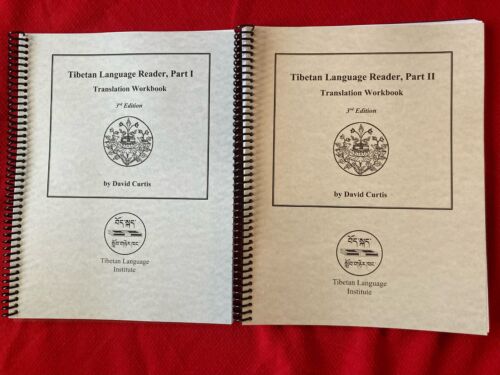 Enhance your understanding of the Dharma by reading in Tibetan many of the prayers you may already be familiar with. Save $10 when ordering the Tibetan Language Reader, Parts I and II together.
Enhance your understanding of the Dharma by reading in Tibetan many of the prayers you may already be familiar with. Save $10 when ordering the Tibetan Language Reader, Parts I and II together. -
Out of stock
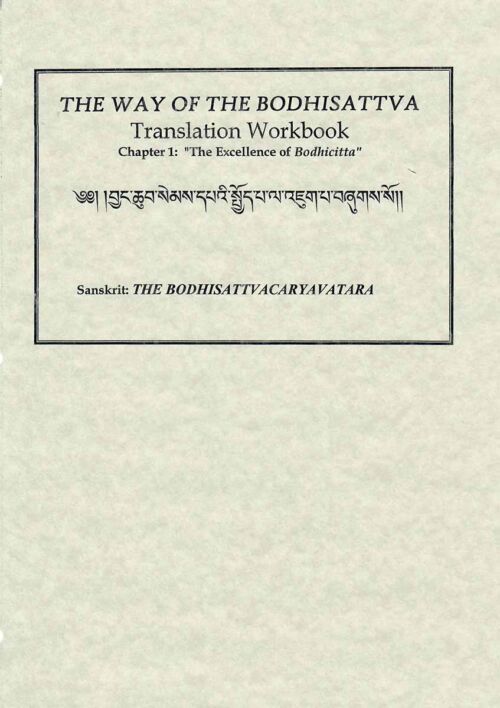 Composed in the 8th century, this text becomes richer and richer with each reading--it combines those rare qualities of scholastic precision, spiritual depth, and poetical beauty.
Composed in the 8th century, this text becomes richer and richer with each reading--it combines those rare qualities of scholastic precision, spiritual depth, and poetical beauty. -
Sale!Out of stock
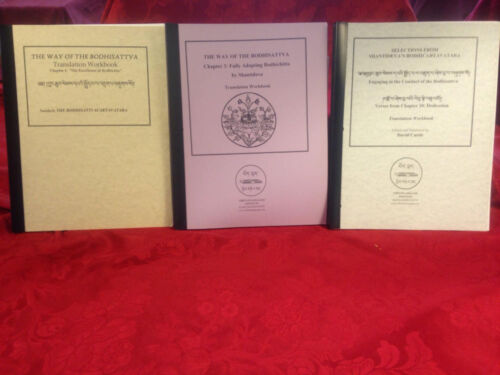
 With TLI’s Way of the Bodhisattva Reader/Translation Package, English-speaking students
With TLI’s Way of the Bodhisattva Reader/Translation Package, English-speaking students- Can further their understanding of Classical Tibetan
- Can deepen their understanding of the BuddhaDharma
-

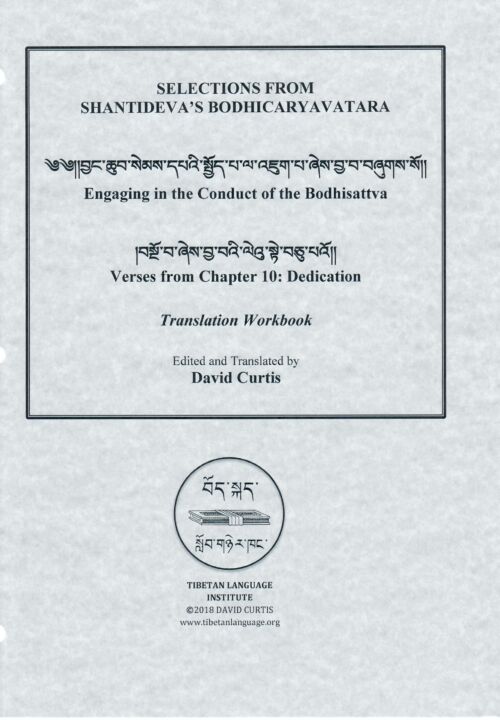 This Chapter 10 translation workbook includes:
This Chapter 10 translation workbook includes:- 4 Verses of Tibetan per page, with English translation on facing page
- Reading practice pages
- Annotated Tibetan-English Glossary
- Appendices: Abbreviations; Verb Classes; Table of Contents for the Tibetan text of the Divine Tree Grammar Poem.
-
Out of stock
 Learning Tibetan can significantly enhance your study and practice of the Dharma. Study from the convenience of your own home. Study materials are sold separately.
Learning Tibetan can significantly enhance your study and practice of the Dharma. Study from the convenience of your own home. Study materials are sold separately. -
 Building on a foundation of the study of words, phrases and sentences in Tibetan, the student will begin to integrate material presented in the Level 1 course, learning how Tibetan works as a language. This course lays the foundation for the successful reading of Tibetan texts and participation in the Level III Reading Course.
Building on a foundation of the study of words, phrases and sentences in Tibetan, the student will begin to integrate material presented in the Level 1 course, learning how Tibetan works as a language. This course lays the foundation for the successful reading of Tibetan texts and participation in the Level III Reading Course. -
 Building on a foundation of the study of words, phrases and sentences in Tibetan, the student will begin to integrate material presented in the Level 1 course, learning how Tibetan works as a language. This course lays the foundation for the successful reading of Tibetan texts and participation in the Level III Reading Course.
Building on a foundation of the study of words, phrases and sentences in Tibetan, the student will begin to integrate material presented in the Level 1 course, learning how Tibetan works as a language. This course lays the foundation for the successful reading of Tibetan texts and participation in the Level III Reading Course.

